I dug into the early week with an afternoon five klick run on Tuesday, squeezing in a neighbourhood lap before dinner time. I figured I’d get it out of the way and have my evening free and clear. It worked.
Wednesday was the usual Run Club meetup, and so I went to the drop in at 6pm and we did an out and back on the suburban asphalt (with a bit of off-road trail mixed in) and the weather wasn’t too hot but it was slightly uncomfortable at the upper ends of my safety range. We logged only about seven klicks.
Thursday my streak continued and I organized a casual adventure run in one of the southside suburbs. We did a big lap down through the Windermere area, and had to double back for you-know-who showing up ten minutes late and then texting me. No problem. He did drive all the way across down in rush hour traffic for a run.
Friday, I was feeling adventurous and up for an afternoon solo, so I drove down to the dog park and did some trail running across the river in the wilds. I logged about six klicks on the flat wilderness run, which was a bit of an homage to RM who had started a hundred mile ultra that same morning down in the south of the province.
RM was still running when I did my Saturday morning run around the neighbourhood again and logged a simple five klick lap. He would finish his 161km trail race after running straight through for 31 gruelling hours. I just got to brag that I’d hit day eight on my streak.
Sunday the firesmoke was starting to creep back in a bit, though the air quality was only at a five so we met and ran nine klicks for my ninth day of streaking. I had anticipated a real slog, what it being the ninth day of a solid daily run, but I think I’m in a bit of high point on the streak right now and that nine klicks felt really, really good. I could have kept going—maybe even to my race distance.
Monday I found myself back to the solo run life for a few days, and with a stretch of evening obligations needing to get my run in earlier in the day. I got out the door by 11am and did a respectable 6km lap around the neighbourhood, up near the grocery store and back along the freeway.

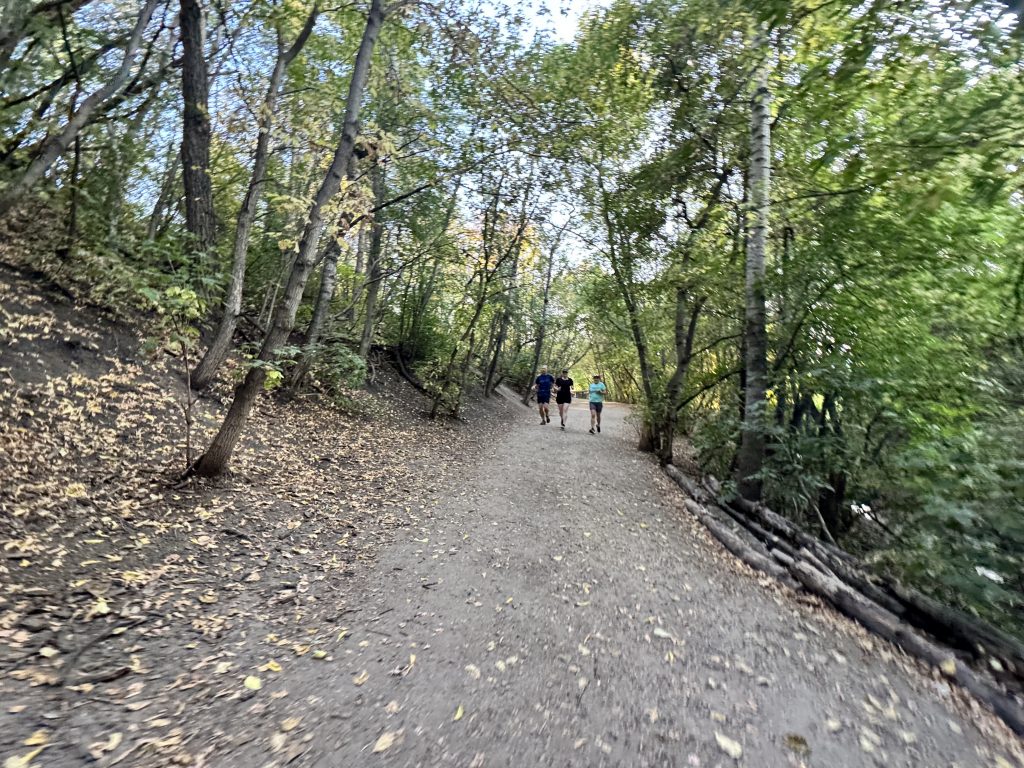
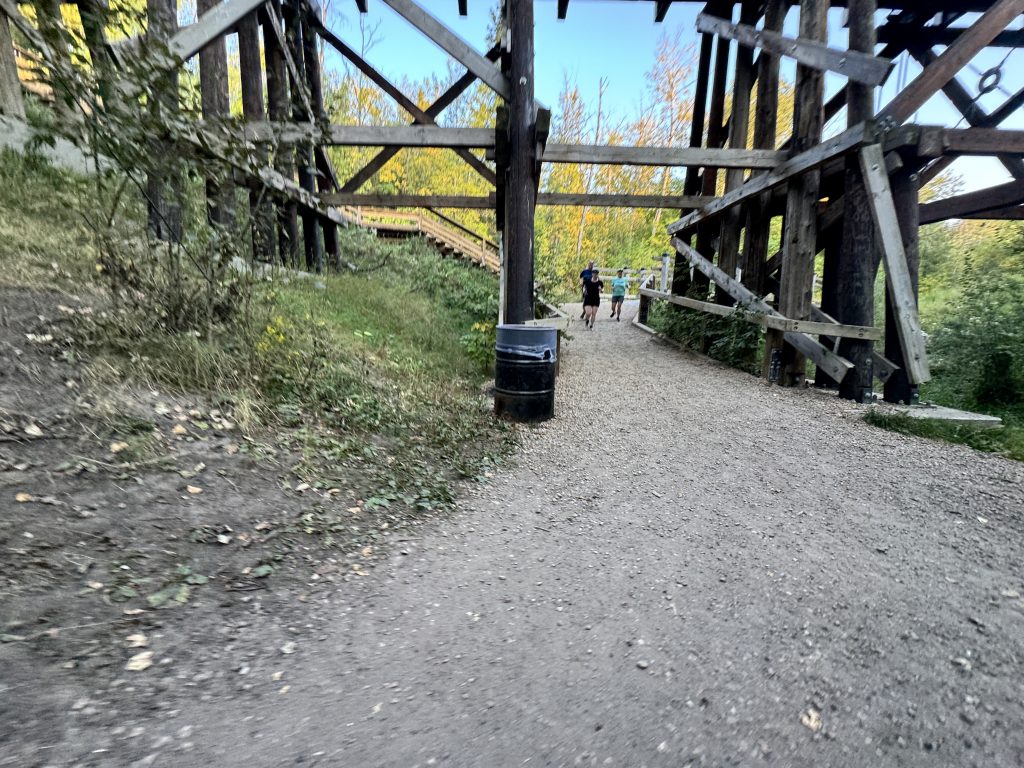
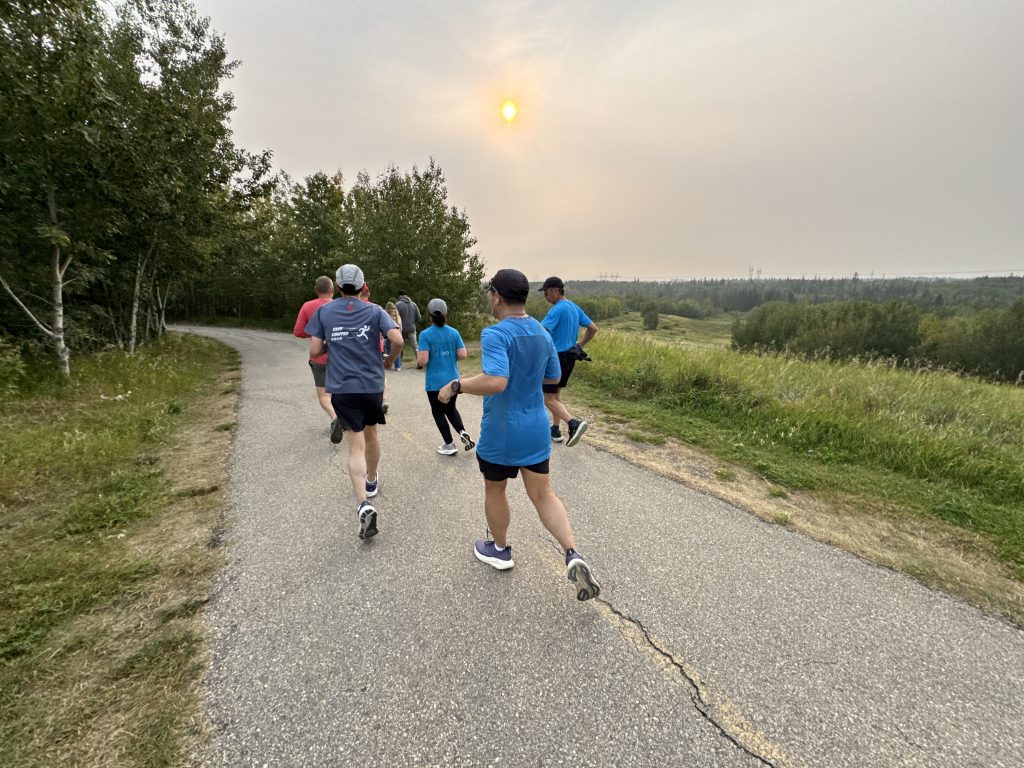
Tuesday I was in a similar situation, but not wanting to repeat my route from Monday I took a reverso and started up the freeway path but took a turn the opposite way and looped up around the other grocery store for another 6km. It was the eleventh day of my streak and I’m creeping up to a total distance around 70 klicks for the span of it.
I was back in the pool on Wednesday, but all the way across town. Needing to run an errand I took advantage of my morning proximity to a city rec centre and brought my gear to swim about thirty minutes. I gotta say, it’s a nicer facility than my home location—just a shame it’s a twenty minute drive down the freeway.
Needing to continue my streak, I was back on the trails later Wednesday morning. Avoiding the monotony of just doing more laps around the neighbourhood, I drove closer to the trailhead of the river valley trails and logged six klicks down and close to the dog park, including some great single track.
On day thirteen of my streak, I was finally able to connect with real people again and we met for our regular Creek run. That whole meetup location started because of it’s location close to where The Kid had dance class, but now that she has moved on from her youthful extra curriculars the run meetup may need to adapt—or whatever. There were enough of us out last night that it’s hardly my decision anymore.




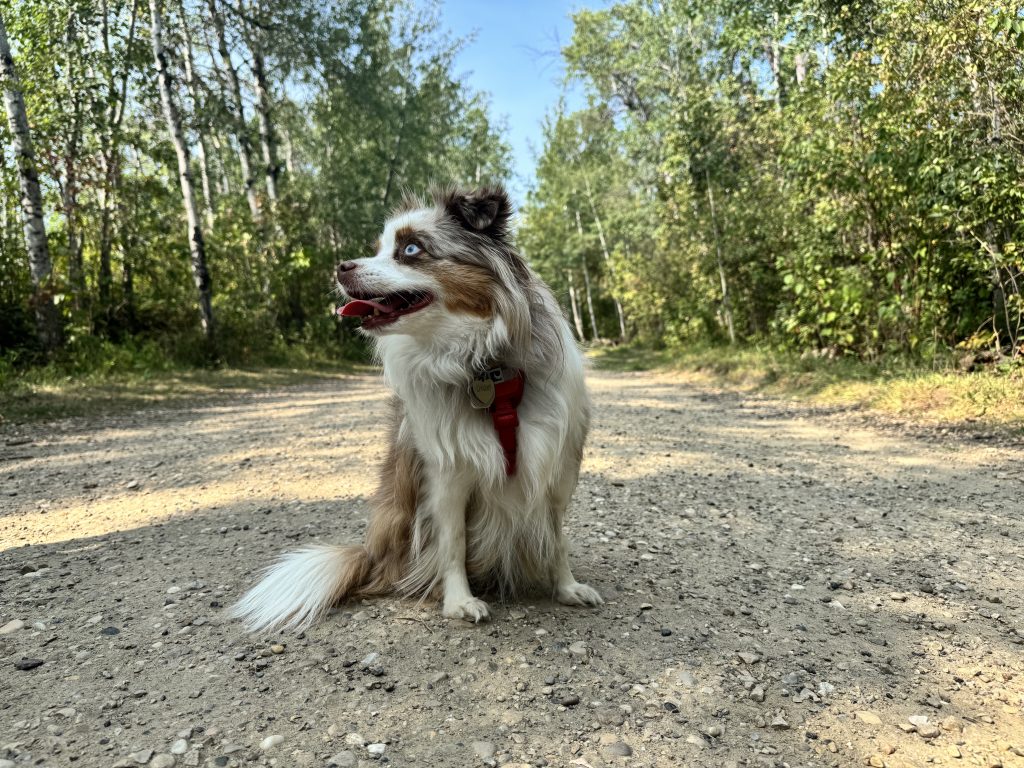

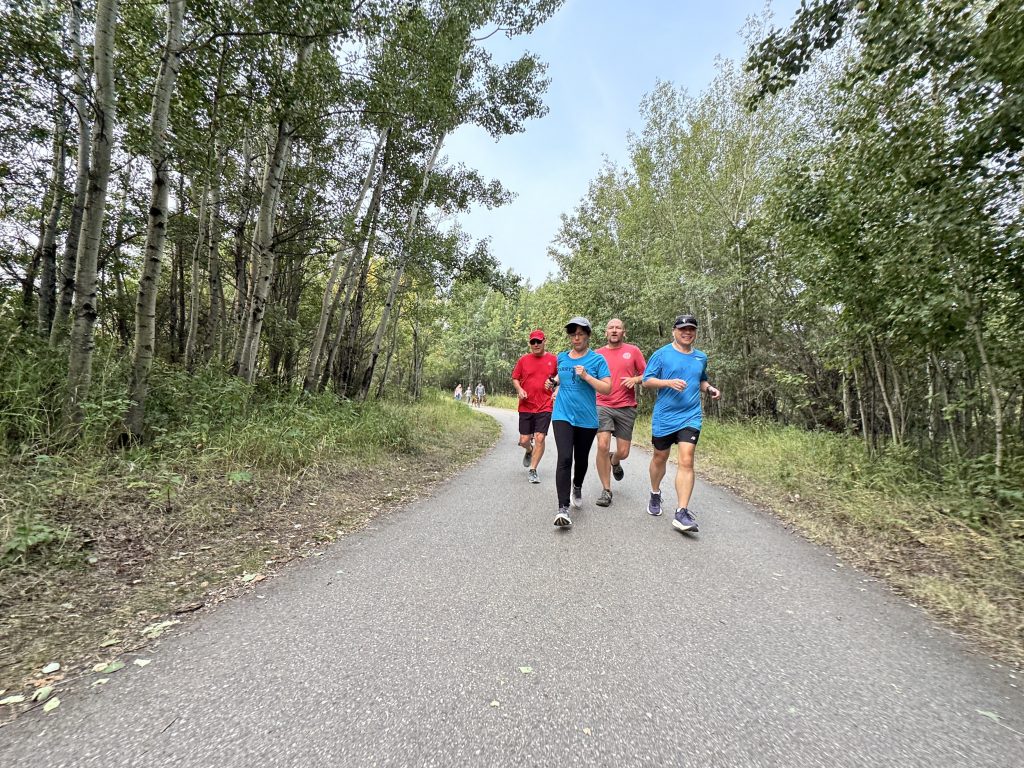




You must be logged in to post a comment.